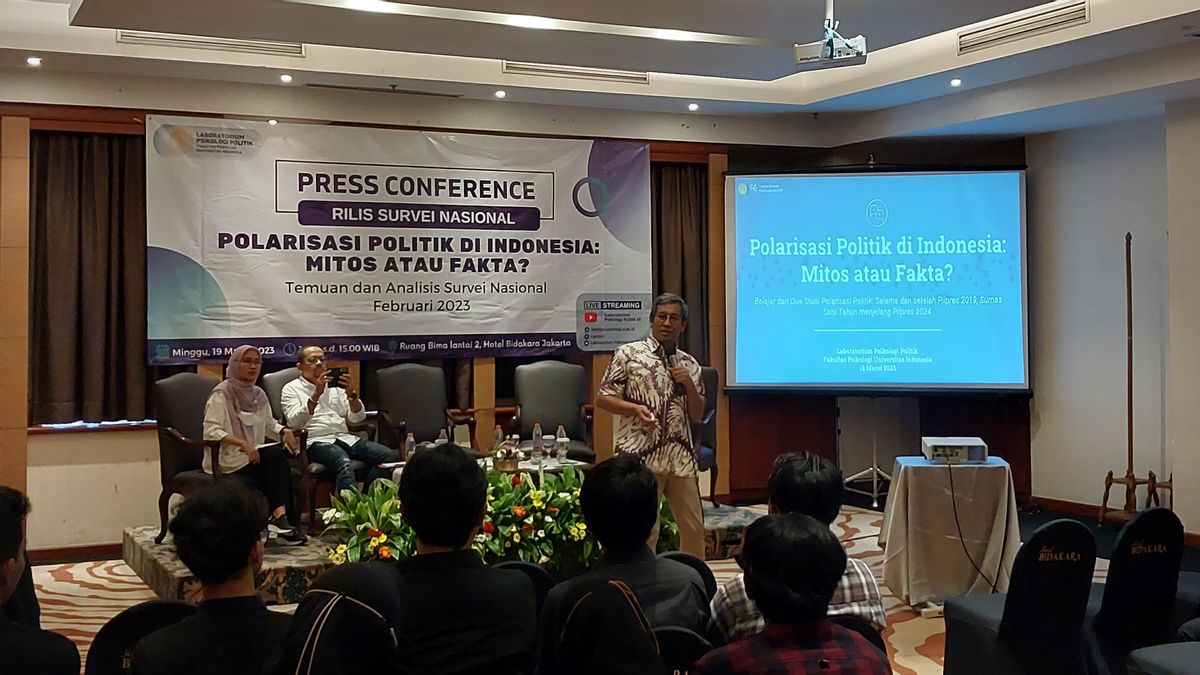JAKARTA - The University of Indonesia (UI) Political Psychology Laboratory conducted a survey of public opinion regarding the remaining political polarization in 2019 which still exists ahead of the current 2024 General Election.
Head of the UI Political Psychology Laboratory Hamdi Muluk said, the results of this survey showed that the community was polarized into 2 groups, namely cluster 1 which is pro-government and cluster 2 which does not side with the government or is anti-foreign and "asseng".
"The survey results show that people are polarized into 2 groups with proportional sizes, namely cluster 1 of 57 percent versus cluster 2 of 43 percent," said Hamdi during a survey presentation, Sunday, March 19.
In detail, cluster 1 is a pro Jokowi group that is relatively secular in a moderate direction, satisfied with the government's performance, relatively not prejudiced against foreign economic forces and "asseng".
Meanwhile, cluster 2 has a group in the political ideology of religious dimensions. Where, they believe that leaders must be Muslim or religious, public policies based on religion, to punitive sanctions against blasphemers, sharia regulations get a high endorsement).
"Cluster 2 also believes in the conspiracy theory that the government is a conspiracy of foreign and "asseng" forces. This cluster expresses dissatisfaction with the policies and results achieved by the government," said Hamdi.
In addition, this survey also found indications of the implications of this inauguration on the consequences of affect (feelings). Where, it can be seen that these two clusters tend to develop negative emotions to groups outside groups that do not exist in the context of support during the 2019 presidential election.
However, Hamdi continued, this survey did not find any negative implications of this inauguration in violent social behavior, and or more serious social segregation behavior.
"Implications are more towards negative sentiment (activeness). But of course caution is still needed so that implications do not develop towards a more serious direction," he explained.
For information, the UI Political Psychology Laboratory's public opinion survey on the remaining polarization of the 2019 presidential election was held from February 6 to February 28, 2023.
In this survey, the analysis techniques used include item-response theory (IRT), compound principal (PCA), and latent clarification analysis (clustering) using the method of measuring Sigma Distance. The total respondents were 1,190 Indonesian citizens aged 17 years and over who came from 33 provinces.
The English, Chinese, Japanese, Arabic, and French versions are automatically generated by the AI. So there may still be inaccuracies in translating, please always see Indonesian as our main language. (system supported by DigitalSiber.id)








